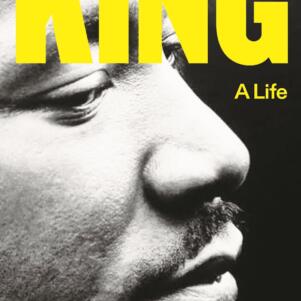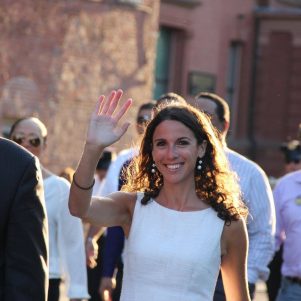Liberal Good Government Group Says Scrap Union Loophole
By State House News Service | December 6, 2018, 19:00 EST
By Matt Murphy
STATE HOUSE NEWS SERVICE
Two groups who sometimes battle each other on Beacon Hill over fairness and transparency in elections both urged state campaign finance regulators on Thursday to scrap a legal interpretation that allows unions to donate up to $15,000 to a single candidate.
Common Cause Massachusetts and the Massachusetts Fiscal Alliance agreed at a hearing before Office and Campaign and Political Finance director Michael Sullivan that a 1988 bulletin exempting unions from contribution limits that apply to individuals and political action committees should be reconsidered.
The controversial bulletin is now part of a rule-making process requested by Common Cause after the Massachusetts Supreme Judicial Court questioned the legal strength of the so-called “union loophole” in a ruling against Mass Fiscal earlier this year upholding the state’s ban on corporate political donations.
With the support of the Fiscal Alliance, two business owners and the Goldwater Institute asked the U.S. Supreme Court this week to hear an appeal of that case, but the group is also hoping it can prevail with the state Office of Campaign and Political Finance in striking down the union donation rule.
Pam Wilmot, executive director of Common Cause Massachusetts, told Sullivan that her group disagrees with Mass Fiscal that corporations should be treated equally to individuals or unions in campaign finance law, but questioned the $15,000 limit.
“We believe it increases public skepticism about government about the political process, that it has no basis in law and should be overturned,” Wilmot said.
Common Cause recommended that unions be held to the same limits as political action committees, and restricted to giving no more than $500 to any one candidate in an election cycle, and be forced to register as a PAC if it donates more than $15,000 in the aggregate.
A lawyer for the Fiscal Alliance said that while the conservative group believes the state’s ban on corporate donations violates the equal protection clause of the U.S. Constitution, that is an argument being pursued in a separate case before the federal Supreme Court.
Instead, Tad Heuer, of Foley Hoag, argued that the interpretive bulletin overstepped the Office of Campaign and Political Finance’s regulatory authority and that the statute itself was clear that unions should not be exempt from the reporting requirements and contribution limits imposed on other groups.
Jacob Ventura, an Attleboro Republican, told Sullivan that had he known in 2017 about the union loophole he never would have run in a special election against state Senator Paul Feeney, who Ventura said raised more than $70,000 in union loophole donations, putting Ventura at a significant disadvantage.
“It is my opinion that that particular limit is way out of whack in terms of equity and we’re here today to talk about making sure we have more equity in terms of campaign finance,” Ventura said.
‘It’s Worked’
The bulletin came out of a U.S. Supreme Court ruling that found associations could not be required to register as a political committee if their expenditures for political purposes were minimal, though the court did not set a threshold.
The Massachusetts Office of Campaign and Political Finance decided to allow unions and other organizations that do not solicit or receive funds for political purposes to spend from their treasury on candidates up to $15,000 before they would have to register as a political action committee.
Rich Marlin, legislative director for the Massachusetts Building Trades Council, said he thinks the Office of Campaign and Political Finance should “leave it where it is.”
“It’s been in place. It’s worked. The Legislature has not requested or ordered you to change it. So we think you should leave it in place,” Marlin said.
Shanna Cleveland, senior counsel for Free Speech for People, said she is concerned that the policy has allowed “savvy political groups from K Street and other states” to flood Massachusetts elections with $15,000 donations.
“We think you should rescind and tie rules moving forward to the strict limitations in the statute,” Cleveland said.
Maurice Cunningham, a University of Massachusetts Boston political science professor, took issue with Mass Fiscal’s characterization of the bulletin as a rule that unfairly advantages unions over corporations.
Cunningham argued that research has proven that corporations and wealthy individuals are far more effective at influencing the electoral process, and said, “There is no reason to believe Massachusetts is some shining exception.”
Sullivan welcomed interested parties to continue to submit through the end of the month any information that might be useful to him in deciding how to proceed, and said he’d even be willing to meet with people or groups one-on-one.
“Not surprised by what I heard. Got some thinking to do. Want to talk to some more people,” Sullivan said at the end of the hearing, adding, “I’m pretty open minded on this whole issue. I really want to think about it.”
Sullivan said the bulletin predates his tenure at the Office of Campaign and Finance, and he’s unsure whether the solution might be regulatory or legislative or if action is unnecessary.
“Paul, I will not debate this via Tweet,” he teased Mass Fiscal spokesman Paul Craney, in friendly manner.
While somewhat unrelated to the matter at hand, Retailers Association of Massachusetts president Jon Hurst also testified, asking Sullivan to do something about the ban on non-profit trade associations that are also incorporated from spending money to administer a political action committee.
“We created one about 20 years ago, but to say that we’re effective certainly isn’t the case,” Hurst said about his association’s PAC.
Hurst said that for trade associations like his, and for chambers of commerce, the overhead of running a political action committee is too much when they are trying to fund-raise from “mom-and-pop” small business owners.
“It’s a process that doesn’t work for small business and it really creates discrimination and a chilling effect,” Hurst said.
Sullivan said he thought only the Legislature could address Hurst’s concerns.
If the Office of Campaign and Political Finance decides to issue draft regulations to address the union loophole bulletin, Sullivan said the goal is to have that done by February 1 for public comment.











